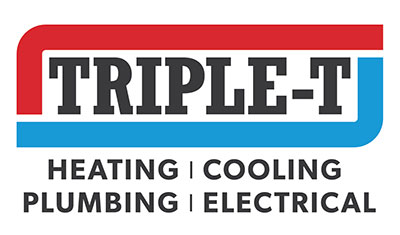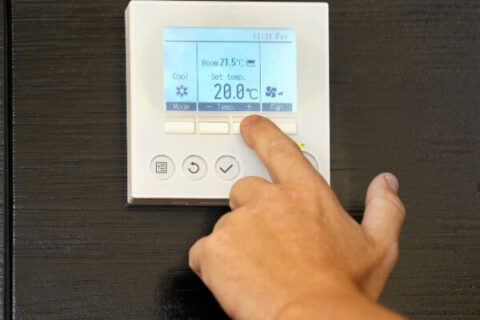6 Advantages & Disadvantages of Heat Pumps
Did your air conditioner just go out? Is your furnace on the fritz as well? It could be time to replace them. But rather than sticking with a furnace and air conditioner combination, consider installing a heat pump. This HVAC system is less common in Utah, but it’s quickly gaining popularity as one of the most efficient, eco-friendly ways to heat and cool a house. Learn how this equipment works and the heat pump pros and cons to consider before making your decision.
How Does a Heat Pump Work?
Like an air conditioner, a heat pump uses refrigerant to move heat from one location to another. In fact, the two systems operate identically in the summer, extracting heat from inside your home and exhausting it outside.
Thanks to an ingenious reversing valve, a heat pump can also operate in reverse, allowing it to heat your home in the winter. As long as it isn’t too cold outside, the refrigerant can absorb thermal energy from outdoor air and deposit it inside.
What are the Advantages of a Heat Pump?
Heat pumps offer plenty of benefits to Utah homeowners. Here’s what to expect if you install this HVAC equipment:
- Year-round comfort: The dual operating capability of a heat pump is the primary reason many people consider upgrading. After all, you simplify your heating and cooling needs when one piece of HVAC equipment keeps your home comfortable in all four seasons.
- Improved safety and eco-friendliness: People with gas furnaces are susceptible to natural gas leaks and carbon monoxide poisoning. With no open flames or fumes, these risks don’t exist with an electric heat pump, making it one of the safest types of HVAC equipment. The lack of fossil fuel emissions also makes heat pumps more eco-friendly.
- Lower operating costs: If electricity is your preferred fuel, you can slash your heating bills by switching from an electric furnace to a heat pump. While even the most advanced furnace can never be more than 100 percent efficient, heat pumps boast around 300 percent efficiency. This is only possible because heat pumps move heat rather than generate it from a fuel source, allowing them to pump three or four units of heat into your home per one unit of electricity they consume.
- Pairs well with solar panels: If you have solar panels or are thinking of installing them, know that they are compatible with electric heat pumps. Powering your efficient electric HVAC system with free, renewable solar energy cuts your utility bills year-round and lowers your environmental impact even more than using a heat pump alone.
- More even temperatures: Heat pumps don’t produce as intensely hot air as furnaces, resulting in longer run cycles. This reduces the uncomfortable temperature fluctuations so common with single-speed furnaces. It also gives conditioned air more time to circulate effectively, so you avoid hot and cold spots.
- Better humidity control and air quality: If you have a whole-house humidifier, a heat pump’s longer run cycles help it add sufficient humidity to counteract Utah’s dry winter air. Plus, the longer your forced-air system runs, the more airborne pollutants it can catch in the HVAC filter, improving your indoor air quality as a result.
What are the Disadvantages of a Heat Pump?
Before buying a heat pump system, it’s important to know the potential downsides. Here are the cons of heating and cooling your home with a heat pump:
- Higher installation cost: Because heat pumps are more complex, they cost more to purchase and install than a comparable air conditioner. However, you may save money compared to replacing an AC unit and furnace at the same time.
- Reduced efficiency in cold weather: Effectively extracting thermal energy from outdoor air becomes increasingly difficult as the temperature drops. To overcome this, heat pumps feature a far less efficient backup electric heating element. This ensures your home stays comfortable no matter how cold it gets outside, but it raises your energy bills in the process. Fortunately, cold-climate heat pumps are continually improving, making them increasingly efficient in frigid regions.
- The need to defrost: Sub-freezing temperatures cause ice to form on the outdoor heat pump unit. This forces the system to enter defrost mode, melting the ice so it can continue operating. Defrost mode pauses the flow of heat into your home and increases operating costs.
- Drafty feeling: While a heat pump’s longer run cycles are beneficial in some ways, they also have drawbacks. For instance, lower-temperature air flowing from the supply registers can create drafts, making it uncomfortable to sit too close to a vent.
- More noise: Longer run cycles also mean the fan and compressor are on more often in cold weather, which creates operating noise. Choosing a heat pump with a low noise rating decreases the distracting sound, as does installing the outdoor unit away from windows and doors.
- Shorter lifespan: While heat pumps and air conditioners have a similar life expectancy of 10 to 15 years, gas furnaces can last much longer. Consider this when comparing the lifetime costs of different HVAC systems.
Contact Triple T to Schedule Heat Pump Installation
Are you ready to install a heat pump in your Utah home? Could you use more help deciding if a heat pump is right for you? Either way, Triple T Heating, Cooling & Plumbing is happy to help. Our HVAC experts can recommend installing a heat pump or a traditional furnace and air conditioner combination based on your lifestyle, budget, and expectations.
For more information about heat pumps or to request an installation estimate, please contact us at 801-798-7711 if you live in Utah County or 435-275-4011 if you’re a Washington County resident. You can also schedule HVAC services online.


